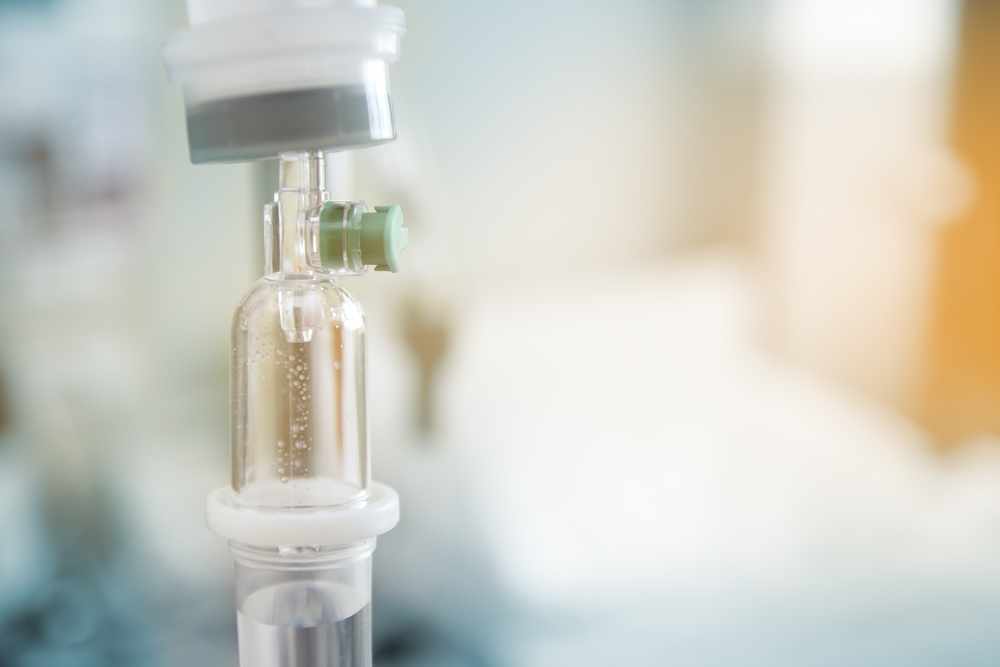-
Cancer
Mayo Clinic Cancer Center adjusts chemotherapy schedules to accommodate more patients

PHOENIX — Researchers at Mayo Clinic Cancer Center have developed, tested and implemented new system that schedules outpatient chemotherapy appointments throughout the day, thus preventing crowded outpatient infusion facilities in the middle of the day. A summary of the researchers' findings is published in JCO Oncology Practice.
"Most people are not aware of the near-universal phenomenon at infusion centers across the country, where the bulk of chemotherapy infusions happen between 10 a.m. and 2 p.m. daily," says Alan Bryce, M.D. Dr. Bryce is an oncologist at Mayo Clinic Cancer Center in Phoenix, which is one of the sites across Mayo Clinic Cancer Center that tested the scheduling system.
Kris Altman, a nurse manager in charge of the chemotherapy unit at Mayo Clinic Cancer Center in Phoenix says that traditional scheduling leads to an excess of appointments that occur between 10 a.m. and 2 p.m. "The goal of spreading outpatient chemotherapy appointments throughout the day is to improve patient safety by avoiding periods of time where patient volumes exceed staffing levels — and also to avoid the subsequent pressure on nurses to skip or minimize breaks to manage patient volumes at those peak times."
Altman says chemotherapy infusion appointments should begin early in the day, stay level and then drop off quickly at the end of the day. "This schedule allows the nursing team to maintain optimal and efficient staffing, and it decreases patient waiting times and unanticipated delays," says Altman.
Dr. Bryce says the scheduling system is "a thing of beauty, and the direct result of managerial excellence, professionalism, and intentional effort from our nursing and scheduling teams." He says it requires discipline on the part of the teams to adhere to the plan and not make exceptions for any of the reasons that consistently arise. "Without that discipline, the outcomes would be less ideal for patients and staff alike," says Dr. Bryce.
"We have implemented this system at Mayo Clinic in Minnesota, and it was the first time I have ever seen a project successfully show exactly what the model predicted could be done," says Robert McWilliams, M.D., an oncologist at Mayo Clinic in Minnesota. "This is a true example of a win both for patients and the people who care for them."
This research was supported by the Mayo Clinic Robert D. and Patricia E. Kern Center for the Science of Health Care Delivery.
###
About Mayo Clinic Cancer Center
Designated as a comprehensive cancer center by the National Cancer Institute, Mayo Clinic Cancer Center is defining new boundaries in possibility, focusing on patient-centered care, developing novel treatments, training future generations of cancer experts, and bringing cancer research to communities. At Mayo Clinic Cancer Center, a culture of innovation and collaboration is driving research breakthroughs that are changing approaches to cancer prevention, screening and treatment, and improving the lives of cancer survivors.
About Mayo Clinic
Mayo Clinic is a nonprofit organization committed to innovation in clinical practice, education and research, and providing compassion, expertise and answers to everyone who needs healing. Visit the Mayo Clinic News Network for additional Mayo Clinic news.
Media contact:
- Joe Dangor, Mayo Clinic Public Affairs, 507-284-5005, newsbureau@mayo.edu







